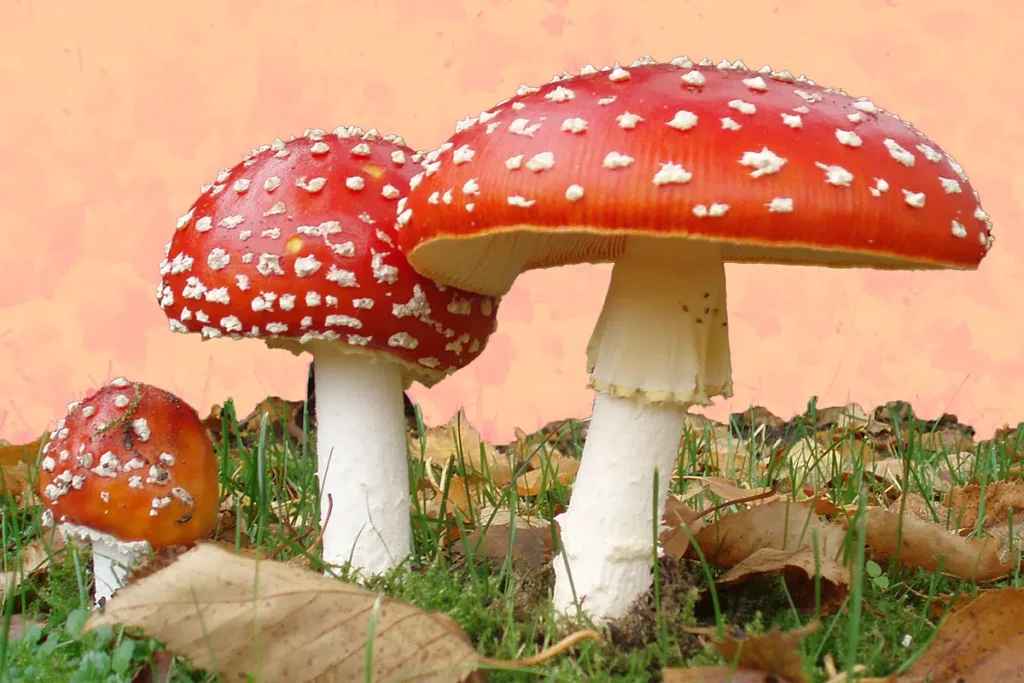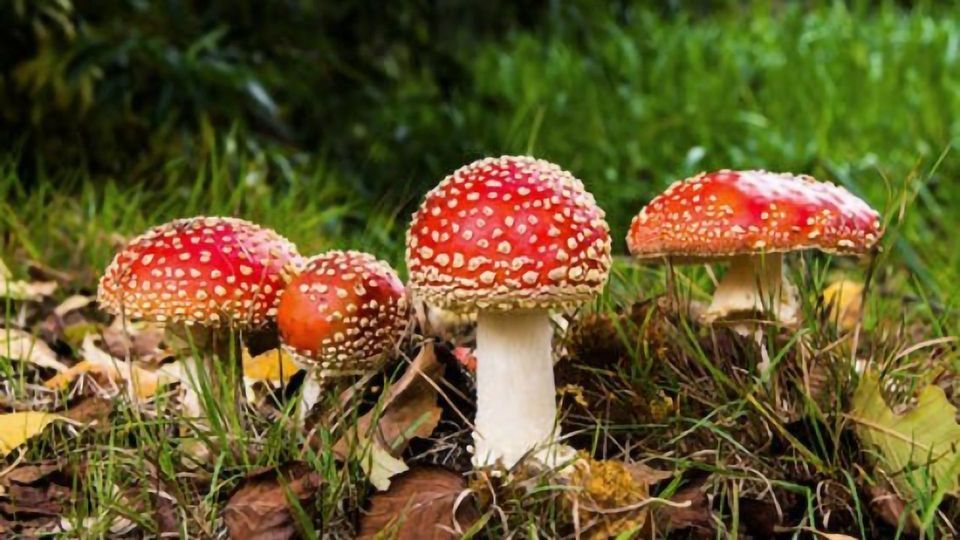Can Muscimol Cause Anxiety?
- Al Nicola
- June 3, 2023
- 9:29 am

Being one of the most common mental health conditions, anxiety affects millions of people all over the world. It’s usually described as feelings of unease, intense fear, and worrying that something bad is going to happen. The symptoms of anxiety can be different for practically anyone ranging from rapid heartbeat, restlessness, and excessive sweating. While anxiety is usually linked with genetic and environmental factors, some people are wondering if muscimol can cause anxiety. Thus let’s explore the effects of this mysterious substance on our mental health and anxiety.
What is Muscimol?
Muscimol is a psychoactive compound found in the Amanita muscaria mushroom, also known as the fly agaric. It is well known for its hallucinogenic powers and has been used in traditional cultures for religious and spiritual purposes. Scientifically speaking, muscimol acts as a potent agonist for GABA receptors in the brain, leading to sedative, hypnotic, and calming effects. Now the question remains, how can something that promotes calmness and sedation cause anxiety? Before continuing, we need to better understand what’s anxiety and how does it develop.

Understanding Anxiety
Before delving into the potential relationship between muscimol and anxiety, it is important to understand anxiety itself. Anxiety arises as a natural reaction of your body to stress. It manifests as a sense of fear or unease regarding future events or circumstances. For instance, situations like a job interview or delivering a speech on the first day of school can trigger fear and nervousness in some individuals.
Types of Anxiety
Anxiety manifests in various forms, each characterized by distinct signs and symptoms. It is not uncommon for individuals to experience multiple types of anxiety simultaneously. Additionally, some people may also contend with coexisting mental health conditions, such as depression. Here are four most common anxiety disorders:
- Generalized anxiety disorder (GAD) – It’s a condition in which individuals experience persistent anxiety on a regular basis. The incessant worrying associated with this disorder can significantly hinder one’s ability to perform tasks at work or school, and it may also impact their social interactions with friends and family.
- Panic disorder – Panic attacks are characterized by intense, overpowering, and often uncontrollable feelings of anxiety. These episodes can manifest with various physical symptoms, including difficulty breathing, chest pain, dizziness, and sweating.
- Social anxiety disorder – This disorder is also known as social phobia. It refers to a condition in which individuals harbor an intense fear of being criticized, embarrassed, or humiliated in social settings. This fear can manifest even in ordinary situations, such as eating in front of others or engaging in conversations with people.
- Phobias – A specific phobia occurs when an individual experiences intense fear or anxiety specifically related to a particular object or situation. Common examples of specific phobias include bugs, heights, receiving injections, being in a confined place, or traveling by plane.
Effects of Muscimol on the Brain
Muscimol’s primary mode of action is through its interaction with GABA receptors in the brain. GABA is an inhibitory neurotransmitter that helps regulate neuronal activity, promoting feelings of relaxation and calmness. By binding to GABA receptors, muscimol enhances the inhibitory effects of GABA, leading to a decrease in brain activity and a sedative-like state.
While muscimol’s sedative properties may suggest a potential reduction in anxiety symptoms, its effects on anxiety are not yet fully understood. Some anecdotal reports suggest that muscimol can induce a sense of tranquility and peace, which may alleviate anxiety symptoms in certain individuals. However, there is limited scientific research specifically investigating the relationship between muscimol and anxiety disorders.

Potential Risks of Muscimol
While muscimol may have potential benefits, it is essential to consider the associated risks and side effects. The Amanita muscaria mushroom, from which muscimol is derived, is known to contain other psychoactive compounds that can contribute to adverse effects. These compounds can lead to nausea, vomiting, dizziness, confusion, and hallucinations.
Furthermore, individual responses to muscimol can vary significantly. While some people may experience a sense of relaxation and calmness, others may have an adverse reaction, which may result in anxiety. Factors such as dosage, personal sensitivity, and overall mental health can influence the response to muscimol. This means that muscimol can be a double-edged sword, it can treat anxiety in some people, while in others it may actually cause it. For this reason, it’s very important to exercise caution and don’t overdo it. It’s always better to start with a smaller dose just to observe how your body reacts to the substance.
So Can Muscimol Cause Anxiety?
Many psychedelic drugs can potentially cause anxiety, especially at the beginning phase of the trip, According to anecdotal reports, you might get some “come up anxiety” from consuming Muscimol, although it’s far less severe when compared to other traditional psychedelics such as LSD or Psilocybin.
Amanita muscaria, particularly when fully decarboxylated, is considered by some to be less likely to induce anxiety, since the presence of Ibotenic acid is reduced. Therefore, many people use it to promote relaxation and sleep. Also let’s not forget the most important part, the dosage. According to Erowid, the standard dose of muscimol ranges from 10-15 mg. With higher doses likelihood of experiencing some form of anxiety increases,
Final Word
We can see that the relationship between muscimol and anxiety is complex and multifaceted. While muscimol’s sedative properties may suggest a potential reduction in anxiety symptoms, the “come up anxiety” sill may be present, although it appears to be milder compared to other traditional psychedelics.
The process of decarboxylation reduces the presence of Ibotenic acid, potentially decreasing the likelihood of anxiety induction, however, more scientific research is needed to better understand these mechanisms of action. Ultimately, without enough research, it’s hard to determine whether muscimol will give you anxiety or not. Therefore, approach muscimol with moderation, starting with smaller doses and observing how your body and mind react to the substance.

